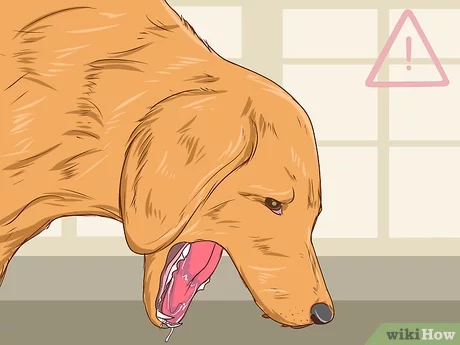Why Does My Dog Pee On Me
Why Does My Dog Pee on Me: Exploring the Possible Reasons and Solutions
If you’re a dog owner who has ever experienced the unpleasant sensation of your furry friend peeing on you, you may be wondering why this is happening and what you can do about it. While there’s no one-size-fits-all answer to this question, as every dog and situation is unique, there are some common reasons why dogs pee on people and some strategies for preventing or addressing this behavior.
In this article, we’ll delve into the possible causes of dogs peeing on their owners, including medical issues, anxiety, dominance, attention-seeking, and confusion. We’ll also discuss some practical tips for reducing the risk of your dog peeing on you or others, such as potty training, socialization, positive reinforcement, and consulting with a veterinarian or a professional dog trainer.
Before we dive into the details, let’s clarify that while pee may seem gross or offensive to us humans, it’s a natural bodily function for dogs that serves multiple purposes. Dogs use urine to mark their territory, communicate with other dogs (via scent), release toxins from their body, and regulate their hydration levels. Therefore, if your dog pees on you or another person, it’s not necessarily a sign of disrespect or malice; rather, it could indicate that your dog needs to relieve himself or express something else.
That being said, there are situations where a dog’s urination can be problematic or concerning. For example:
– If your dog suddenly starts peeing on you or inside the house after being trained to go outside.
– If your dog seems anxious or fearful when interacting with you or other people.
– If your dog shows signs of aggression or dominance towards you or others.
– If your dog has frequent accidents despite being healthy and well-trained.
– If your dog has other symptoms such as lethargy, vomiting, diarrhea, or blood in the urine.
If you notice any of these signs, it’s important to take action and investigate the underlying cause. Here are some possible reasons why dogs pee on their owners and how to address them:
Medical Issues
One of the most common reasons why dogs pee on people is medical problems that affect their bladder control, such as urinary tract infections (UTIs), bladder stones, kidney disease, or diabetes. These conditions can cause your dog to feel pain or discomfort when urinating, have frequent urges to go, or leak urine involuntarily. If you suspect that your dog may have a medical issue, you should schedule an appointment with your veterinarian as soon as possible. Your vet may need to perform some tests (such as a urine analysis or an ultrasound) and prescribe medication or dietary changes to treat the condition.
Anxiety
Another potential cause of dogs peeing on their owners is anxiety, which can manifest in different ways depending on the dog’s personality and triggers. Some dogs may become nervous or scared when meeting new people or animals, being separated from their owners, hearing loud noises, or experiencing changes in their routine or environment. When they feel anxious, they may release urine as a way to cope with stress or signal their submission. To reduce your dog’s anxiety levels, you can try:
– Gradual exposure to new stimuli: Introduce your dog to novel situations or stimuli (such as strangers, other dogs, car rides) in a controlled and positive way. Reward him for calm behavior and gradually increase the intensity or duration of the exposure.
– Desensitization training: Teach your dog to associate certain sounds or objects with positive experiences (such as treats or playtime) instead of fear or anxiety. Use counter-conditioning techniques (such as playing music while feeding him) to create a positive association.
– Calming aids: Consider using natural remedies (such as lavender oil) or commercial products (such as pheromone sprays or anxiety vests) that can help your dog feel more relaxed and secure.
Dominance
Some dogs may pee on their owners as a way to assert their dominance or mark their territory. This behavior is more common in male dogs who have not been neutered, but it can also occur in females or neutered dogs. To prevent your dog from peeing on you for dominance reasons, you should establish yourself as the leader of the pack and set clear boundaries. Here are some tips:
– Use positive reinforcement: Reward your dog for good behavior (such as sitting or staying) and ignore or redirect him when he shows unwanted behavior (such as jumping or growling). Consistency is key.
– Practice obedience training: Teach your dog basic commands such as “sit,” “stay,” “come,” and “leave it.” These commands will help you communicate with your dog and redirect his attention when needed.
– Be assertive but calm: Show your dog that you’re in charge without being aggressive or punishing him. Use a firm tone of voice, direct eye contact, and confident body language to convey your message.
Attention-Seeking
Dogs are social animals who crave attention and affection from their human companions. If they feel neglected or bored, they may resort to attention-seeking behaviors such as barking, chewing, or yes, peeing on people. To prevent this from happening, you should provide your dog with enough mental and physical stimulation throughout the day. Here are some ideas:
– Walks: Take your dog for regular walks (at least twice a day) to give him exercise and exposure to new smells and sights.
– Playtime: Engage in interactive games with your dog (such as fetch, hide-and-seek, tug-of-war) that stimulate his mind and body.
– Toys: Provide your dog with safe and interesting toys (such as puzzle feeders, chew toys, or squeaky toys) that he can play with on his own.
– Training: Teach your dog new tricks or skills (such as agility, obedience, or scent work) that challenge his intellect and improve his bond with you.
Confusion
Finally, sometimes dogs may pee on their owners simply because they’re confused or disoriented. This can happen if your dog is old and has cognitive dysfunction, or if he’s a puppy who hasn’t learned proper potty training yet. To prevent confusion-related peeing, you should:
– Establish a routine: Stick to a consistent schedule for feeding, walking, playing, and sleeping. This will help your dog predict what’s going to happen next and reduce his anxiety.
– Use positive reinforcement: Praise and reward your dog whenever he pees in the appropriate place (such as outside or in a designated area). Avoid punishing or scolding him for accidents, as this can make him more anxious and less likely to learn.
– Supervise closely: Keep an eye on your dog at all times when he’s inside the house. If you notice him sniffing around or circling, take him outside immediately and encourage him to pee there.
Conclusion
In conclusion, dogs may pee on their owners for various reasons, ranging from medical issues to anxiety to dominance to attention-seeking to confusion. While it’s not always easy to determine the exact cause of this behavior, there are some strategies that can help prevent or address it. By providing your dog with enough exercise, mental stimulation, socialization, and obedience training; establishing yourself as a leader but also a loving companion; being patient and consistent in your approach; and seeking professional help if needed; you can enjoy a harmonious relationship with your furry friend without worrying about getting peed on. And if it does happen again… well, just remember that dogs will be dogs!



